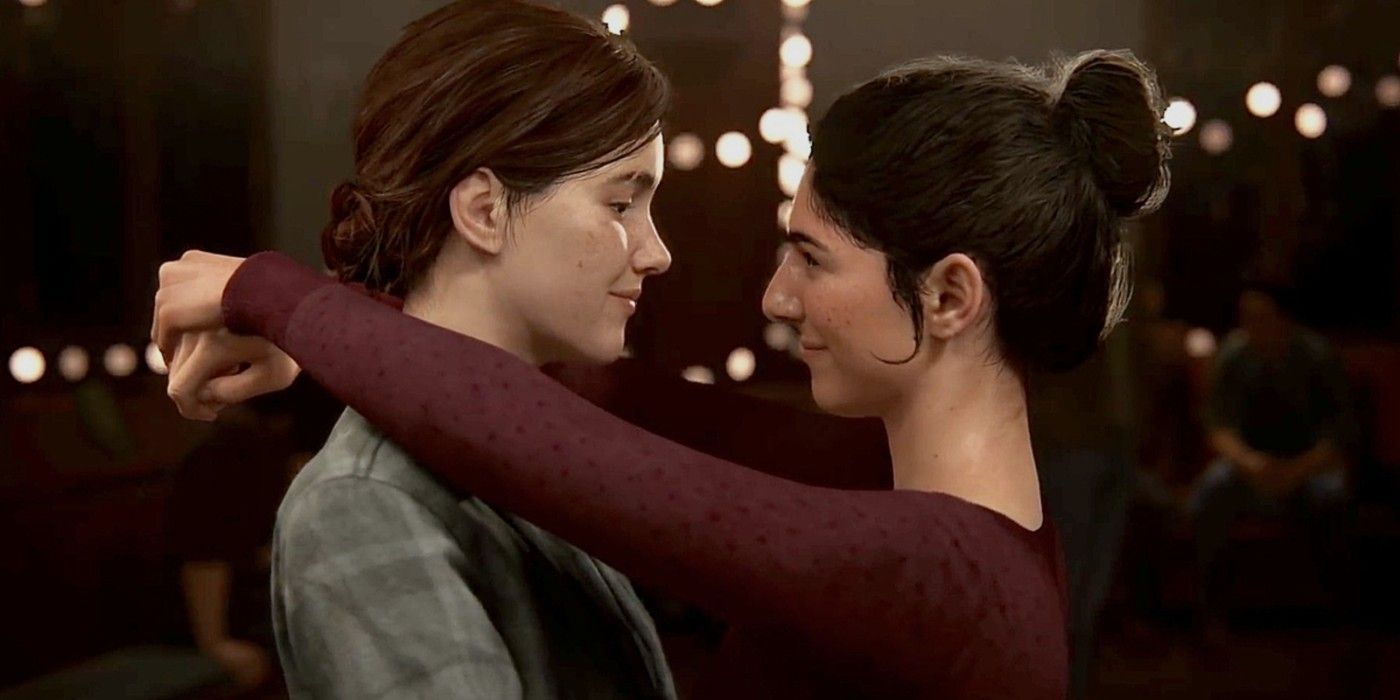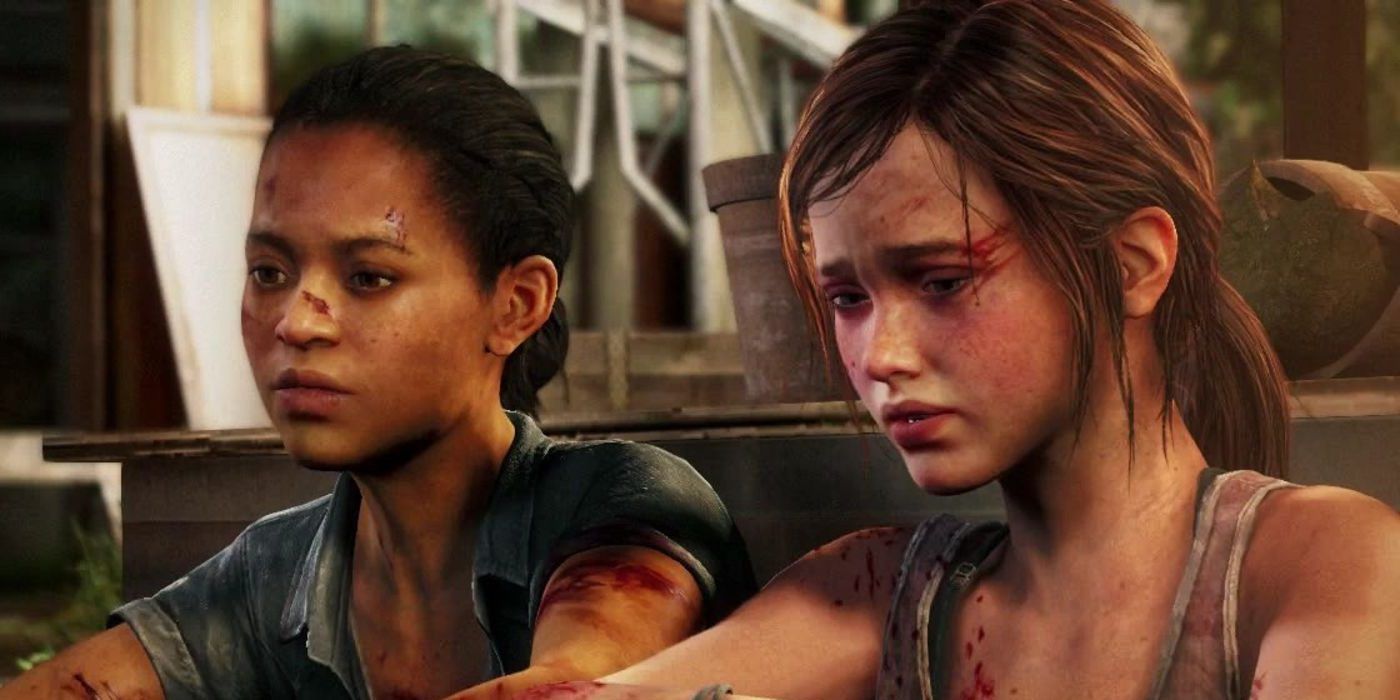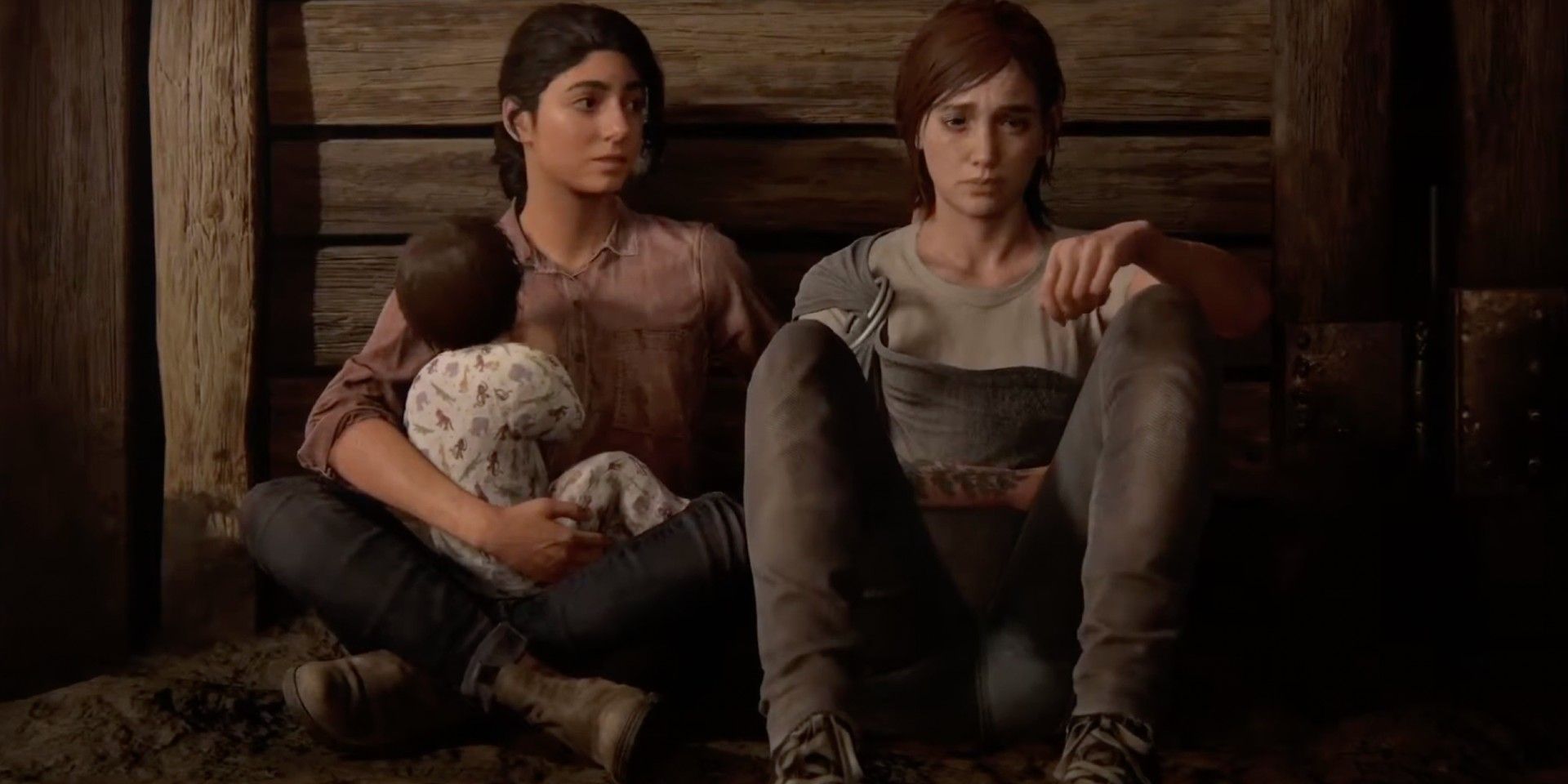With the remake of The Last of Us Part I available now, many fans are about to play through an emotionally complex and morally thorny masterpiece for the first (or second) time.
The franchise has received praise for its rich depictions of female and LGBTQ characters, but those who have played The Last of Us: Left Behind -- a DLC for the original release that's included in the upcoming remaster -- may be frustrated to see an awful yet all-too-familiar trope regarding Ellie's sexual orientation reveal. While The Last of Us Part II mostly atones for the narrative sins of its predecessor, the sequel's introduction of new characters creates additional opportunities for improvement.
What's Wrong With Ellie's Narrative in The Last of Us: Left Behind?
The Last of Us: Left Behind was a later-released DLC for the original title that takes place before the events of the main game. While largely exploring protagonist Ellie's relationship with her childhood friend Riley, it also reveals how Ellie got bitten by an infected and discovered she was immune -- the plot device that drives the base game. That wasn't the DLC's only revelation, however -- fans also learned, through a tender kiss between Ellie and Riley, that Ellie is attracted to women.
In perhaps a wink to players, The Last of Us: Left Behind was released on Valentine's Day 2014, a time in which no major games featured a queer female protagonist. Most honest reviewers praised the game for making progress on this front. However, what happens immediately after the groundbreaking kiss is all too familiar for many queer fans: terror, disaster, and death. Infected appear mere moments after the kiss, both Ellie and Riley are bitten in their escape, and then Ellie watches on as Riley slowly turns into an infected, with Riley presumably killing herself while still conscious or being killed by Ellie after turning.
This turn of events offers a pristine example of the narrative trope called "Bury Your Gays." It involves introducing and then killing LGBTQ characters in rapid or brutal ways and/or in disproportionate numbers. Decades ago, authors (some of them queer themselves) made use of this device to include LGBTQ characters in their stories while avoiding the appearance of "promoting" homosexuality in an effort to skirt censorship laws. Ellie and Riley's story falls into a subcategory of "Bury Your Gays" known as "Out of the Closet, Into the Fire," where a character experiences extreme trauma or death -- for example, being mauled by a zombie or watching their first love die -- just after revealing their same-gender attraction. This trope deserves to be retired, even if it does feel somewhat more at home in the hyper-violent dystopia that is The Last of Us.
How Did The Last of Us Part II Improve Its Queer Representation?
Where The Last of Us Part I could be criticized for compartmentalizing its LGBTQ content into an optional DLC, The Last of Us Part II does the opposite: queer and transgender characters are at the heart of the sequel's story. After Ellie's co-protagonist Joel dies in the beginning chapter of Part II, the player spends most of the first half of the game playing solely as Ellie. Through Ellie, players meet Dina, who is attracted to both men and women, and a later arc introduces Lev, a young trans man.
More than simply introducing these characters and their queer stories summarily as Left Behind did, the game dedicates deep, emotional storytelling to each. Through Ellie's private journal, players can read about her struggle to decide whether and how to tell her father figure Joel that she's queer -- an internal dialogue that is familiar to many LGBTQ people. After Ellie and Dina share their first kiss, a man in their community calls them a homophobic slur, prompting the community's leader to demand an apology. This provides a rare example of an accountability process for someone who has caused harm, one that many LGBTQ people are denied.
A particularly poignant choice by the developers was having Dina find out that she's pregnant after she's already agreed to join Ellie on her quest for vengeance. Throughout their journey and after, players watch Dina struggle with loving someone who is as deeply flawed as Ellie. Together they deal with grief, PTSD-induced flashbacks, and raising a newborn child. This sort of relational complexity is rare in games in general, especially so when it comes to same-sex couples.
Where Can the Series Go From Here?
Though The Last of Us Part II is certainly an improvement in terms of its LGBTQ representation, fans of the series are still asking the developers to do better. When Ellie and Dina are interrupted during their first intimate encounter with the news that Joel is missing, fans may feel an unpleasant similarity to Left Behind.
But it is Lev's storyline in particular that teeters on the brink of the pitfalls of Ellie and Riley's previous narrative. Lev, after shaving his head, is cast out of his ultra-religious sect for violating the norms associated with the sex he was assigned at birth. He and his sister Yara must flee, and Yara's arms are brutally broken by their captors before they escape. Lev's mother refuses to accept him before he flees, and when he later visits her to try to rescue her, he is forced to kill her in self-defense. Throughout this ordeal, Lev's assailants are deadnaming him (using the name he was assigned at birth), which is triggering for some trans players.
Many fans commend the developers for making Lev's storyline central to the game, demonstrating the impacts of familial and communal rejection. They also commend them for intentionally hiring a trans man to voice the character. At the same time, other players argue that Lev is just another trans character who exists only to suffer and make cisgender players feel better about themselves. Though opinions range, it is certainly remarkable that despite all the game's rampant brutality, what Lev experiences is particularly traumatic and inherently tied to his gender.
Some have speculated that any future games in the franchise may step away from Ellie and focus more on Abby, and by extension, Lev. Doing so would give the games the chance to expand on Lev's storyline -- and introduce other LGBTQ characters -- while ensuring that moments of joy, healing, and redemption exist for the entire cast of characters.




